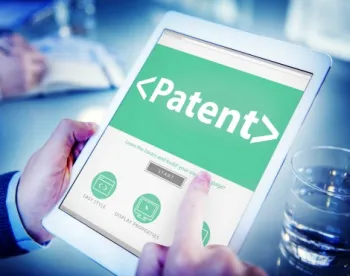Takeaway: The Board will not excuse conduct constituting breach of a protective order simply because the protective order had not yet been entered, particularly when the parties had agreed to operate with the understanding that it was in place.
In its Order, the Board granted-in-part Petitioner’s motion for sanctions against Patent Owner. The Board noted that Petitioner has the burden to persuade the Board that sanctions are warranted. In general, the Board reviews: (i) whether a party has performed conduct that warrants sanctions; (ii) whether the moving party has suffered harm from that conduct; and (iii) whether the sanctions requested are proportionate to the harm suffered by the moving party.
The Board first addressed whether Patent Owner’s conduct was a breach of the protective order. Patent Owner first argued that sanctions are premature because the protective order had not been granted. However, the Board noted that compliance with protective orders is essential in modern discovery practices, and that conduct constituting a breach of the protective order should not be excused simply because the order had not yet been entered, particularly when the parties were operating with the understanding that the protective order was in place. The Board then found there was no dispute that at least some of Petitioner’s confidential information was shared with various third parties. The Board found that at least two of these third parties could only have access to confidential information upon agreement of the parties or an order of the Board, which was not obtained.
The Board then reviewed the harm to Petitioner. Petitioner’s core business is dealing with NPE litigation, and some of the third parties have regular involvement in NPE litigations. Petitioner also stated that it would never have consented to this disclosure. Patent Owner alleged there was no harm because Petitioner cannot allege any financial or competitive damage. The Board was persuaded that Petitioner had suffered harm both because of Petitioner’s business and also the time and money it expended enforcing the terms of the protective order.
Finally, the Board reviewed Petitioner’s requested sanctions: (1) declarations from the third parties more clearly identifying the scope of the breach; (2) entry of a revised protective order; and (3) attorneys’ fees incurred in connection with the breach. The Board had previously ordered Patent Owner to provide declarations from the third parties regarding the scope of the breaches; however, Petitioner asserted they were deficient because they were ambiguous and did not identify the specific information provided to the third parties. The Board agreed that the declarations are ambiguous and should be more specific as to the scope of the access to the confidential information by each individual, as opposed to representations made by counsel.
Petitioner also requested a revised protective order to impose reasonable safeguards in view of Patent Owner’s actions to date. Patent Owner argued that the revised order is “unworkable.” The Board determined that the revised protective order was not necessary to prevent further disclosure of confidential information. The Board did remind the parties of the importance of strict compliance with the protective order, and expressly excluded corporate officers from § 2(A) of the protective order.
Finally, the board reviewed Petitioner’s request for attorneys’ fees. The Board found that an award of attorneys’ fees may be appropriate, and requested additional briefing on the issue.
RPX Corporation v. Applications in Internet Time, LLC, IPR2015-01750; IPR2015-01751; IPR2015-01752
Paper 58/60: Order on Petitioner’s Motion for Sanctions
Dated: May 6, 2016
Patent 8,484,111 B2; 7,356,482 B2
Before: Lynne E. Pettigrew, Mitchell G. Weatherly, and Jennifer Meyer Chagnon
Written by: Chagnon



 />i
/>i

